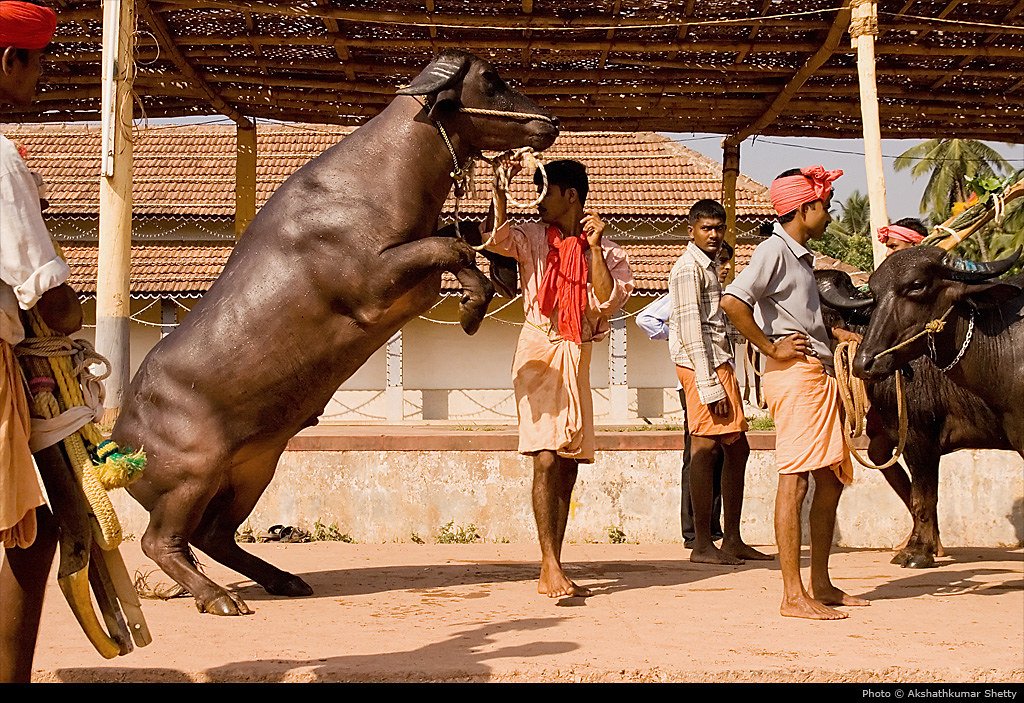
Contents
Putturu Kambala
Welcome to the heart of cultural vibrancy—Putturu Kambala. This age-old tradition blends athleticism, culture, and community spirit in a celebration like no other. In this article, we will delve into the diverse facets of Putturu Kambala, shedding light on its history, events, and the unparalleled excitement it brings.
Location for Puttur Kambala:
The Roots of Putturu Kambala
Unearth the historical roots of Putturu Kambala, tracing its origins to ancient times. Explore how this tradition has evolved, intertwining with the cultural fabric of the region. From humble beginnings to a grand spectacle, Putturu Kambala has stood the test of time.
The Essence of Kambala
The Unforgettable Race
Discover the heart-pounding excitement of the Kambala race, where skilled athletes guide their buffalo pairs through water-filled tracks. This adrenaline-pumping event showcases not only speed and skill but also the deep bond between the participants and their magnificent buffalo partners.
Cultural Significance
Dive into the cultural significance of Putturu Kambala. Explore how each race narrates a story, reflecting the spirit of the community and honoring age-old traditions. The vibrant colors, rhythmic drumbeats, and cheering crowds create an atmosphere charged with enthusiasm.
The Spectacle Unveiled
Traditional Attire and Rituals
Witness the beauty of tradition through the lens of attire and rituals. From vibrant costumes that symbolize the spirit of the race to ancient rituals performed to invoke blessings, Putturu Kambala is a sensory feast that captivates all who partake.
Community Celebration
Explore how Putturu transforms into a community-wide celebration. The event brings together people from all walks of life, fostering a sense of unity and shared heritage. From traditional music performances to delectable local cuisines, the festival is a holistic experience.
Putturu Kambala: Beyond the Racetrack
Impact on Local Economy
Uncover the economic impact of Putturu Kambla on the local community. From attracting tourism to providing economic opportunities, this traditional event plays a vital role in sustaining the region’s economy.
Preservation Efforts
Learn about ongoing efforts to preserve and promote Putturu Kambala. Explore how initiatives are ensuring the continuity of this rich tradition, balancing modernization with the preservation of cultural authenticity.
FAQs
Q: What is the origin of Putturu Kambala? A: Putturu Kambala traces its roots to ancient times, evolving into a cherished cultural tradition that celebrates athleticism and community spirit.
Q: How is the Kambala race conducted? A: The Kambala race involves skilled athletes guiding buffalo pairs through water-filled tracks, showcasing speed, skill, and a deep bond between participants and their buffalo partners.
Q: What is the cultural significance of Putturu Kambala? A: Putturu Kambala holds cultural significance as each race tells a story, reflecting the spirit of the community and honoring age-old traditions.
Q: How does Putturu Kambala impact the local economy? A: Putturu Kambala contributes to the local economy by attracting tourism, providing economic opportunities, and sustaining the region’s economic growth.
Q: Are there preservation efforts for Putturu Kambala? A: Yes, ongoing initiatives are dedicated to preserving and promoting Putturu Kambala, ensuring the continuity of this rich tradition.
Q: How can I experience Putturu Kambala firsthand? A: Plan a visit during the festival season, immerse yourself in the vibrant atmosphere, and witness the thrilling Kambala races along with the cultural festivities.
Conclusion
In the heartland of India, Putturu Kambala stands as a testament to cultural richness, athleticism, and community spirit. This unique tradition continues to weave its magic, captivating hearts and minds. Immerse yourself in the world of Putturu Kambala, where every race tells a story, and every celebration echoes the resilience of tradition.
